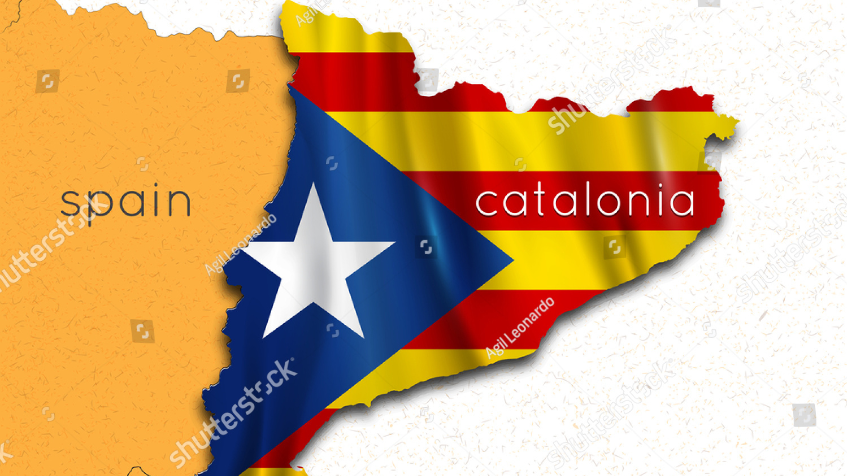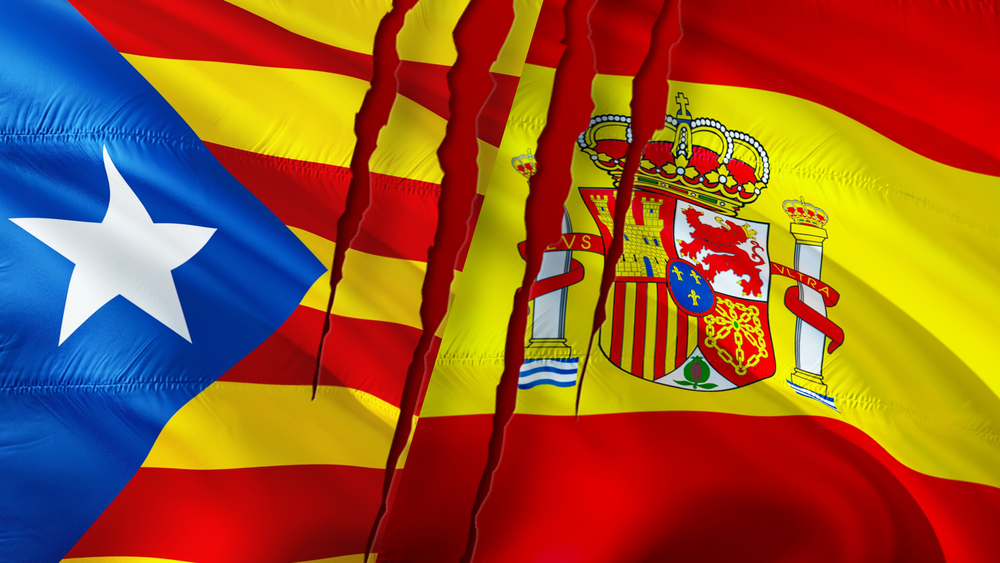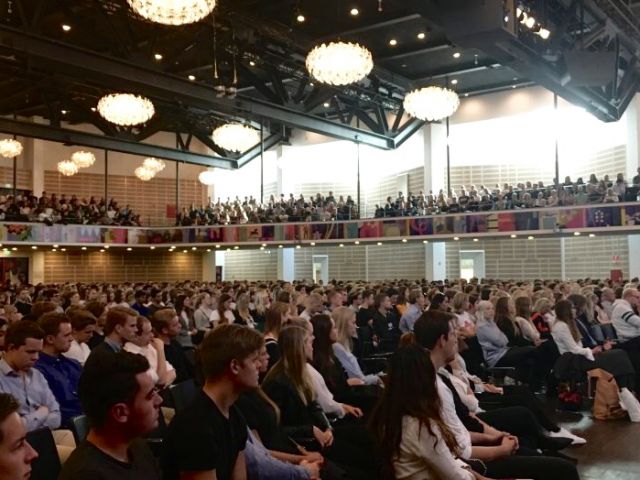Is there a solution in sight for Catalonia?

Photo: Shutterstock
OPINION: You may remember the fight for Catalan secession last autumn. But what happened next? And is there a solution on the cards between Catalonia and the Spanish government?
ResearcherZone | 27. Aug 2018
By: Carsten Humlebæk. Associate professor, Department of Management, Society and Communication, Copenhagen Business School, Denmark.
The Catalan problem is without doubt one of the biggest challenges in Spanish politics in recent years. Since the attempted referendum on independence in October last year, the case has taken one spectacular turn after another.
Take for example the previous Catalan government leader, Carles Puigdemont. He is now back in Brussels after being ‘captured’ in Germany for four months while an extradition case made its way through the German courts based on an arrest order from the Spanish State Prosecutor.
The German court ruled that Puigdemont could only be extradited to Spain for prosecution of undermining and abuse of public funds, which would have put him in a better position than other defendants.
So, the Spanish government cancelled the extradition order, enabling them to uphold all of their original charges.
Seven other leading Catalan politicians live in exile while similar extradition cases progress in Belgium, Scotland, and Switzerland. And nine politicians remain in custody in Spain as they await trial in the Spanish courts.
All of the cases sprang from the so-called referendum on the 1 October 2017 and the preparation for that illegal vote. But the actual charges are for rebellion against Spain, and the misuse of public funds.

Photo: Shutterstock
But problems between the regional government and parliament in Catalonia and the rest of Spain have far deeper roots.
Not the same situation as Scotland
Many journalists covered the Catalan case with some sympathy or understanding for their demands. Many have also criticised the Spanish state’s crackdown and the police operation against the referendum and the harsh charges brought against the imprisoned politicians.
They struggle to understand the difference between events in Spain and Catalonia versus the UK and Scotland, where Scotland held a legal vote for independence, and where there is talk about a second referendum, partly as a fall out of Brexit.
So, why can’t Catalonia just have a similar referendum and, if people vote for it, independence?
Let’s outline three of the most important reasons why the two situations are not the same.
1. An unconstitutional referendum
First, despite having a high degree of autonomy under the Spanish constitution, Catalonia is not a nation state. In the Spanish constitution, Spain is one nation and it does not allow for one part of the country to declare independence from the rest.
Here is where Spain differs from the UK, where Scotland is acknowledged as one of the nations that make up the United Kingdom.
The Spanish constitution does not allow regional referendums on independence since this would acknowledge sovereignty to the Catalan people, which constitutionally, doesn’t exist.
According to their constitution, sovereignty lies with the Spanish nation, and cannot be subdivided or shared.
2. Majority do not want independence
The majority of Catalans do not want independence. At most, 42 to 45 per cent of the population are in favour.
Since 2012, independence has been a political project of those parties in favour of it. They had a majority in the Catalan government as a result of election law, which disproportionately favours rural areas over the cities.
Going by some media reports, you might think that a majority in Barcelona are in favour of independence. But this is not true.
3. Separatists have not always been there
Last but not least, there has not always been a large minority of Catalans in favour of independence.
There has always been support for independence among Catalan nationalists, but they accounted for just 15 to 20 per cent of the Catalan population until the latter half of the 2000’s.
Rising numbers of separatists is a new phenomenon, and could always reverse course.

Photo: Shutterstock
Dialogue has been lacking
The period since 2011 was plagued by a lack of dialogue between the Spanish leader Mariano Rajoy and the then Catalan leader Artúr Mas, who was later replaced by Carles Puigdemont. This was despite promises for dialogue.
Other contributing factors include the interest of both parties to maintain a polarised debate for political purposes.
And it is not only Catalan separatists who in their rejection of Spain’s right to refuse an independence referendum have sought to make the most out of the doubting Catalan nationalists.
The same applies to Rajoy’s total rejection of the nationalists’ demands and the very existence of a political problem that requires political attention.
In his refusal to acknowledge these things, his party, Partido Popular, has sought support from the rest of the country who were angered by the Catalan nationalists’ demands for independence.
Catalan separatists had the wind in their sails between 2006 and 2012, when their numbers swelled. But since 2015, this increase has come to halt.
In fact, the last regional election in December 2017 saw a slight drop in the vote share of the separatist parties in comparison with previous elections in September 2015, despite the enormous agitation in the intervening two years.
The parties went from 47.74 per cent of the vote to 47.5 per cent, and from 72 to 70 seats out of the 135 parliamentary seats available.
This suggests that the parties for independence have already reached all of those who are likely to support their case.
Meanwhile, support among the Spanish for a return to a centralised state, or for a devolved model of regional government with less autonomy, has risen significantly.
In 2008, 10.7 per cent of Spanish people were in support of a centralised form of government without devolved powers to the regions, but in 2013 this had risen to 38.7 per cent in favour of either a centralised state or reduced powers to devolved regional governments than exists currently.
Dialogue at last?
Today, there is a new government in Spain, after Rajoy suffered a vote of no confidence on 1. June. The Catalan government was replaced in June after a number of attempts since the regional elections took place in December.
For the first time since 2011, something resembling dialogue has been in place between the new leaders of the two governments, Pedro Sánchez and Quim Torra.
Positions are still strongly marked, but unlike Rajoy, Sánchez has no interest in igniting the conflict beyond its current state, since his socialist party does not gain from such polarisation.
Internal divisions among those who seek independence also mean that Torra does not necessarily have the same polarising interests as his predecessor Puigdemont.
But no sign of a solution, yet
Clearly, there are no easy solutions, and it is likely to require constitutional reform, especially with regard to autonomy of regional governments.
A large proportion of Spanish politicians are unwilling to start, due to fear a waning consensus behind the constitution drawn up in 1978, which has become such a strong symbol of Spanish democracy, but also a constraint in relation to necessary updates.
People are now openly discussing the need for reform, and the parliamentary work is slowly beginning.
So, even though there is no solution in sight yet, there is still hope that one will be found in the future.




































































































































Comments